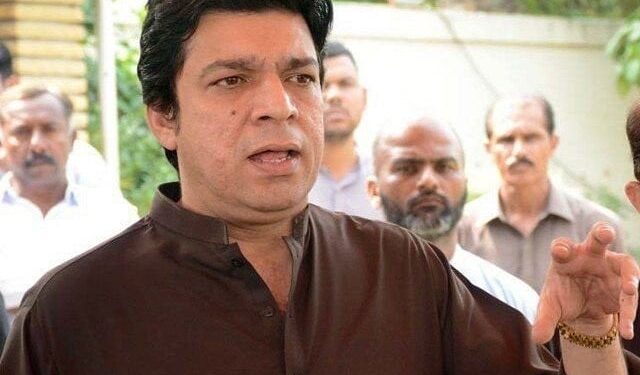Introduction: Strong Words Amid Escalating Tensions
In a powerful and wide-ranging statement, Senator Faisal Vawda has lauded the response of Pakistan’s military leadership—particularly the Chief of Army Staff—to what he described as India’s “bad propaganda” against Pakistan. The former federal minister and current senator made these remarks during a recent television interview, highlighting both geopolitical tensions and domestic unity.
Vawda stressed that India’s hostile behavior, both past and present, has been met with firmness and strategic responses from Pakistan’s security apparatus. He noted that the Army Chief’s recent actions, including closure of airspace and halting trade, have had economic and diplomatic repercussions for India, signaling that Pakistan is not one to back down in the face of cross-border provocation.
India-Pakistan Tensions: A Historical Backdrop
Relations between India and Pakistan have long been marked by deep-seated hostility, stemming from decades-old territorial disputes—most notably over Jammu and Kashmir. Military standoffs, diplomatic spats, and proxy conflicts have fueled tension in the region, often spilling over into economic, media, and political arenas.
In recent years, propaganda wars through media and diplomatic channels have become more pronounced. India has often accused Pakistan of harboring militants, while Pakistan counters that India is involved in state-sponsored propaganda to tarnish its global image.
Senator Vawda’s comments align with the broader Pakistani narrative that India is using media manipulation and diplomatic pressure to divert attention from its own internal problems, including human rights abuses in Kashmir.
Army Chief’s Strategic Response: A Multifaceted Approach
Vawda credited the Pakistan Army Chief for a well-calculated response to India’s recent propaganda campaign. According to the senator, the Army Chief took decisive steps that sent a clear and effective message to India, including:
- Closing Pakistan’s airspace to Indian flights, disrupting aviation routes
- Halting bilateral trade, causing economic friction
- Projecting strength on the global stage, particularly regarding defense and national interests
These actions, Vawda claims, served as a powerful deterrent against India’s alleged disinformation campaign and demonstrated that Pakistan’s leadership is ready to defend both its territorial and economic sovereignty.
Economic Vision: Reko Diq and National Projects
In a notable shift from security issues to economic development, Vawda highlighted the Army Chief’s vision for economic transformation, pointing to strategic projects like Reko Diq, mineral exploration, and energy sector developments.
The Reko Diq project, one of the world’s largest undeveloped copper and gold mines located in Balochistan, has recently garnered renewed attention with Pakistan striking deals with international investors. Vawda emphasized that such mega projects have the potential to transform Pakistan’s economic future, and their success is being closely monitored by rival states, particularly India.
“These projects are part of a long-term vision,” he said, “and their success is causing tremors within the Indian government, which fears Pakistan’s economic rise.”
Regional Security: China-Pakistan Axis and the Water Crisis
Faisal Vawda went on to stress the importance of regional alliances and looming geopolitical challenges, particularly with regard to water security. He said that in the coming years, water would become even more valuable than gold, predicting that future conflicts could erupt over water resources.
He warned India that any attempt to control Pakistan’s water supply would be met with a firm response, asserting that Pakistan would not compromise on its natural resources.
“Threats against our water will tighten around India’s neck,” he warned. The reference likely alludes to ongoing disputes over the Indus Waters Treaty, under which India and Pakistan share river water. There have been tensions in recent years over water flow control, with accusations that India is violating treaty terms.
Vawda also referenced Pakistan’s strong strategic partnership with China, asserting that the two nations present a united front in the face of regional instability. The China-Pakistan Economic Corridor (CPEC) and growing military cooperation between Islamabad and Beijing add weight to this assertion.
Countering Terrorism Accusations: Pakistan’s Firm Stance
In addressing allegations of terrorism often directed toward Pakistan by India and some Western media outlets, Senator Vawda reiterated Pakistan’s firm condemnation of terrorism in all forms. He rejected any accusations made against Pakistan and asserted the country’s right to respond to unjust blame or false flag operations.
“If we are accused without proof, we will respond with full force,” Vawda declared.
This statement comes amid international concern regarding cross-border terrorism and rising tensions along the Line of Control (LoC) in Kashmir. Both nations have engaged in regular skirmishes, often accompanied by heated exchanges in diplomatic and media spheres.
Call for National Unity: Bringing Leaders Together
In a notable suggestion aimed at fostering domestic unity, Senator Vawda called on the Prime Minister to take a leadership role in bringing together all political leaders—including the founder of Pakistan Tehreek-e-Insaf (PTI)—for a national meeting.
“This is a golden opportunity for the Prime Minister,” Vawda emphasized. “All leaders must sit together to formulate a collective national policy on issues of national security, economy, and water.”
His call is particularly significant in the current political climate, where partisan divisions and ongoing political instability have weakened consensus-building. With mounting internal and external challenges, Vawda’s remarks underscore the importance of national cohesion in navigating turbulent times.
Civil-Military Relations: A Call for Leadership in Democracy
In what could be interpreted as both praise and a veiled criticism, Vawda expressed admiration for the leadership role of the Army Chief, lamenting that such decisive leadership is not always present in the democratic system.
He said, “The command of Pakistan lies with a capable Army Chief. He has a clear plan of action. I only wish we had such leadership consistently within our civilian democratic framework.”
While Vawda’s comments might stir debate, they reflect a long-standing dynamic in Pakistan’s civil-military relations, where the military has often played a dominant role in governance, national security, and foreign policy.
His remarks may also reignite discussions around strengthening democratic institutions, ensuring civil supremacy, and delineating roles between military and civilian leadership.
Conclusion: A Comprehensive National Response
Senator Faisal Vawda’s wide-ranging comments touched upon key aspects of Pakistan’s security, economic direction, political unity, and regional challenges. His defense of the military’s response to Indian propaganda, combined with a call for national unity and strategic focus on critical projects like Reko Diq, paints a picture of a nation gearing up for self-reliance and resilience.
At a time when South Asia is witnessing renewed friction, Vawda’s remarks reflect both confidence in Pakistan’s strategic institutions and concern over future challenges, especially regarding water security and geopolitical competition with India.
As tensions remain high and the global spotlight increasingly focuses on the subcontinent, Pakistan’s internal strength, unity, and visionary leadership will play a pivotal role in shaping the country’s future.

























